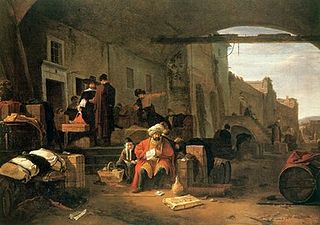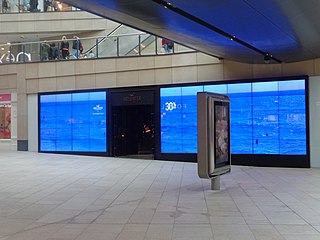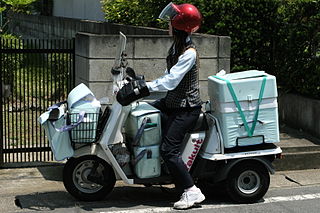 W
WDistribution is one of the four elements of the marketing mix. Distribution is the process of making a product or service available for the consumer or business user who needs it. This can be done directly by the producer or service provider or using indirect channels with distributors or intermediaries. The other three elements of the marketing mix are product, pricing, and promotion.
 W
WThe bullwhip effect is a distribution channel phenomenon in which demand forecasts yield supply chain inefficiencies. It refers to increasing swings in inventory in response to shifts in consumer demand as one moves further up the supply chain. The concept first appeared in Jay Forrester's Industrial Dynamics (1961) and thus it is also known as the Forrester effect. It has been described as “the observed propensity for material orders to be more variable than demand signals and for this variability to increase the further upstream a company is in a supply chain”.
 W
WA concession or concession agreement is a grant of rights, land or property by a government, local authority, corporation, individual or other legal entity.
 W
WDelivery is the process of transporting goods from a source location to a predefined destination. Cargo is primarily delivered via roads and railroads on land, shipping lanes on the sea, and airline networks in the air. Certain types of goods may be delivered via specialized networks, such as pipelines for liquid goods, power grids for electrical power and computer networks such as the Internet or broadcast networks for electronic information. Car transport is a particular subgroup; a related variant is Autorack, which involves transport of autos by railroads.
 W
WThe direct market is the dominant distribution and retail network for American comic books. The concept of the direct market was created in the 1970s by Phil Seuling. The network currently consists of:three major comic distributors: Diamond Comic Distributors, which has nearly monopolized such distribution Lunar Distribution and UCS Comic Distributors, and Penguin Random House Publisher Services, which is slated to distribute Marvel Comics effective 1 October 2021 the majority of comics specialty stores, and other retailers of comic books and related merchandise.
 W
WDisintermediation is the removal of intermediaries in economics from a supply chain, or "cutting out the middlemen" in connection with a transaction or a series of transactions. Instead of going through traditional distribution channels, which had some type of intermediary, companies may now deal with customers directly, for example via the Internet.
 W
WRetail food delivery is a courier service in which a restaurant, store, or independent food-delivery company delivers food to a customer. An order is typically made either through a restaurant or grocer's website or mobile app, or through a food ordering company. The delivered items can include entrees, sides, drinks, desserts, or grocery items and are typically delivered in boxes or bags. The delivery person will normally drive a car, but in bigger cities where homes and restaurants are closer together, they may use bikes or motorized scooters. Recently, autonomous vehicles have also been used to complete deliveries.
 W
WA free box is a box or location used to allow for people to rid themselves of excess items without the inconvenience of a garage sale. When someone has items they wish to be rid of, but which might be useful to another person, they are set out and given to whoever wants them. If, after a period, no one has claimed the items, the contents of the box may be donated to a charity like Goodwill or The Salvation Army.
 W
WGroundnut pyramids were pyramid-like structures made from groundnut sacks. The pyramids were built in northern Nigeria in cities such as Kano, where groundnut production was a key part of the economy. They were viewed as both a tourist attraction and a symbol of wealth. In the 1960s and 70s, as production in Nigeria shifted from agriculture to oil, the groundnut pyramids disappeared. Recently, the Nigerian government has made efforts to revive the groundnut industry and rebuild the pyramids.
 W
WA merchant is a person who trades in commodities produced by other people, especially one who trades with foreign countries. Historically, a merchant is anyone who is involved in business or trade. Merchants have operated for as long as industry, commerce, and trade have existed. In 16th-century Europe, two different terms for merchants emerged: meerseniers referred to local traders and koopman referred to merchants who operated on a global stage, importing and exporting goods over vast distances and offering added-value services such as credit and finance.
 W
WThe music industry consists of the individuals and organizations that earn money by writing songs and musical compositions, creating and selling recorded music and sheet music, presenting concerts, as well as the organizations that aid, train, represent and supply music creators. Among the many individuals and organizations that operate in the industry are: the songwriters and composers who write songs and musical compositions; the singers, musicians, conductors, and bandleaders who perform the music; the record labels, music publishers, recording studios, music producers, audio engineers, retail and digital music stores, and performance rights organizations who create and sell recorded music and sheet music; and the booking agents, promoters, music venues, road crew, and audio engineers who help organize and sell concerts.
 W
WSales are activities related to selling or the number of goods sold in a given targeted time period. The delivery of a service for a cost is also considered a sale.
 W
WIn commerce, supply chain management (SCM), the management of the flow of goods and services, between businesses and locations, and includes the movement and storage of raw materials, of work-in-process inventory, and of finished goods as well as end to end order fulfillment from point of origin to point of consumption. Interconnected, interrelated or interlinked networks, channels and node businesses combine in the provision of products and services required by end customers in a supply chain.
 W
WWholesaling or distributing is the sale of goods or merchandise to retailers; to industrial, commercial, institutional or other professional business users; or to other wholesalers and related subordinated services. In general, it is the sale of goods in bulk to anyone other than a standard consumer. Wholesaling is the selling of merchandise to anyone either a person or an organization other than the end consumer of that merchandise.
 W
WA Yakult lady, also known as an Yakult auntie, is a woman who sells Yakult products as an employee or delivers the products door to door to individuals at their homes. In order to promote good health, they sell and market Yakult products while riding bicycles, motorcycles, or other automobiles. They wear the company's uniform, including a hat and a pair of gloves. Men such as Kazuhisa Ishii have also worked as Yakult "ladies". The Yakult lady home delivery system was introduced in 1963 while the Yakult Lady System started in 1981.